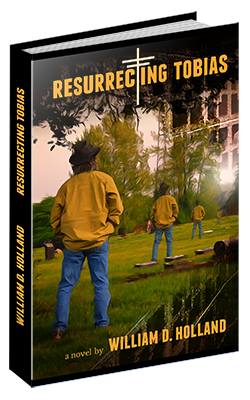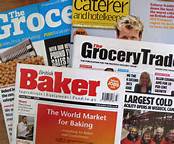The Writer's Mailbag: Installment Sixty-Six
Another Monday Another Mail Delivery
And good morning to you all! How’s it going in your life? Is your muse treating you with love and respect?
I don’t know if you saw it on the news but there was a horrific bus wreck in Seattle yesterday. Several dead, many injured. A busload of college exchange students was hit broadside by a tourist bus. In the blink of any eye, lives were gone.
That got me thinking just how lucky I am to be a writer. If you don’t see the connection then you’re not trying hard enough. J
Let’s get started with a question from Audrey.

Kindle Scout
From Audrey: “So what is Kindle Scout and how is it a win win? The curious want to know--and on the issue of self publishing? Once a book is self-published, will an agent still take it?”
Audrey, I’m going to let the Kindle Scout website tell you: Kindle Scout is reader-powered publishing for new, never-before-published books. It’s a place where readers help decide if a book gets published. Selected books will be published by Kindle Press and receive 5-year renewable terms, a $1,500 advance, 50% eBook royalty rate, easy rights reversions and featured Amazon marketing.
In other words, if your ebook is chosen, you can receive a publishing contract from Kindle, and I believe the selections are made based on sales. Instead of publishing a normal ebook on the Kindle site, you download your ebook on the Kindle Scout site and you are automatically eligible. It seems like a win-win to me. Any old way you look at it, you have your ebook published, and you just might end up with a publishing contract and a cash advance.
Now for your second question…..yes, it has happened before and happens every year, that an agent will take on an ebook and pitch it to a traditional publisher. It also happens that traditional publishers will offer a contract to an ebook author…but….there has to be a proven track record of outstanding ebook sales before that will happen. Publishers and agents are not stupid. They pay close attention to ebook sales, and they are more than willing to swoop in and gobble up a book that is performing well.

Book Signings
From Bill: I didn’t copy and paste his question so I’ll have to paraphrase…..
“Thanks for answering my last question. About book signings….how do you determine the cost of the signing, or what is the percentage given to the bookstore?”
I did a horrible job of paraphrasing and I’m sorry. What Bill is asking about, obviously, is a book signing. He wants to know who gets how much money from the sale of a book, and how is that determined. This is one of those little “nuts and bolts” questions that will stump many a person until they actually do a signing and then it’s like “oh, that wasn’t so hard.”
The answer to Bill’s question is determined by the place where the signing takes place. It changes from place to place. Some independent bookstores will charge a 60/40 split, or a 70/30 split. You, as the author, negotiate that split in revenue. Some places, like a coffee shop, may not charge anything at all, or they might charge something like $25 for the use of their space. It really just depends on the place and what their policies are. I’ve had it happen where it was free for me and I’ve had 60/40 splits….it just depends.

Trade Journals
From Marie: “Bill, can you tell me what a trade journal is, and are they worth writing for? Oh, and how do I find a listing of them?”
Well sure I can, Marie.
A trade journal is a magazine (publication) that targets a specific segment of the population…..for instance bird lovers, or autoworkers, or hunters. Are they worth writing for? Of course! Trade journals pay the same as most other magazines, and if you are knowledgeable in their subject matter then you should go for it. As for how do you find a listing of them, my first two thoughts are “The Writers Market” and “Publishers Weekly.” Either one should give you some help.
The Use of Numerals in Fiction
From Peter: “I’m confused. When do you use numerals in a short story or novel, and when do you write out the number using words? I’ve seen it done differently many times and it gets a bit confusing.”
Well, Peter, you got that right. It’s confusing as hell. The general rule is numbers 0-100 should be written using words; numbers larger than one-hundred should be written in numerals. But then you can go online and ask that question and you’ll be amazed by how many secondary rules there are, some conflicting opinions by people who are supposedly experts in the field.
I’ve read many a novel during my lifetime and I’ve seen authors…famous authors….do it either way. One will write 10 while another will write ten. One will write one-hundred and twenty while another will write 120. One rule that seems to be consistent is when you have a number with a decimal point. In that case numerals are always used….as in 10.5 million.
Who is correct? Which way is acceptable? I’m sure people will weigh in on this, and someone will surely mention the AP style, but the bottom line is many a published author has defied the rules and done it their way. My best suggestion…be consistent. If you ever get published by a traditional publisher they will have you change it when they edit it. If you are self-publishing, then be consistent and if someone gets their nose out of joint over it, tough!
New Writers
From Elaine: “Do you have any advice for a new writer who is just starting out?”
I hate the word “advice,” Elaine, because it sounds like I’m a know-it-all and I really do try to avoid that…but…you asked the question, so here goes.
New writers…..a couple things come to mind immediately. One, practice your craft. I read an interview with Eric Clapton once, and the interviewer asked him how long it took for him to learn to play the guitar? He laughed and said he was still learning. This coming from someone considered one of the great guitar players in the last half-century. I’ll bet B.B. King would have said something similar. The point is obvious, isn’t it? You can’t succeed in any of the Arts unless you move from beginner to apprentice to journeyman to master. It is a progression we all have to follow. Some never do and fall by the wayside. Others understand the importance of practice.
Secondly, don’t quit your day job. That should be self-explanatory.
Third, go out and experience life. When I read a book I want the author to take me places, do exciting things, teach me things I don’t know or blow my socks off with exceptional writing that is only born from experience. Writing is one of the few endeavors we get better at as we get older, and I think that’s true, to a certain extent, because the older we get the more of life we’ve experienced.
Live long and prosper….and then write about it!
More on Self-publishing
From Eric: “About that publishing and book signing deal. Could you publish a little book with me as the author -- the book signing sounds fun but I really don't want to work that hard to do one myself. There really must be a how to book written that shows us how to get the perks of being a writer without the hard work. I already got the tweed coat with leather elbow patches and a pipe. And of course the turtleneck.
Which brings me to my question. Sometimes I read a piece and I can feel the author's soul being wrenched out right before my eyes. Admittedly I have been there. That kind of cathartic writing takes a toll. I suspect you have been there. Advice is one thing, but what do you do to stay so even keeled?”
I actually told Eric in a comment that he already has a book written and he doesn’t know it. If he took all of his “Sunday Sermon” articles and treated them as chapters, he would have a book.
As for his real question, cathartic writing does take a toll, and I had to back away from it because of that. I don’t do nearly as much of it as I once did. I still do some of it when I’m writing a novel, but if it starts to get too heavy I walk away from it until I can handle it again…so you see, I’m not nearly as even-keeled as I appear.

That’s All for This Week, Folks!
Now, if you’ll excuse me, I’m going to go live life like my tail feathers are on fire. There’s a lot of life left in these old bones and I want to experience it all…and then write about it!
2015 William D. Holland (aka billybuc)
“Helping writers to spread their wings and fly.”









